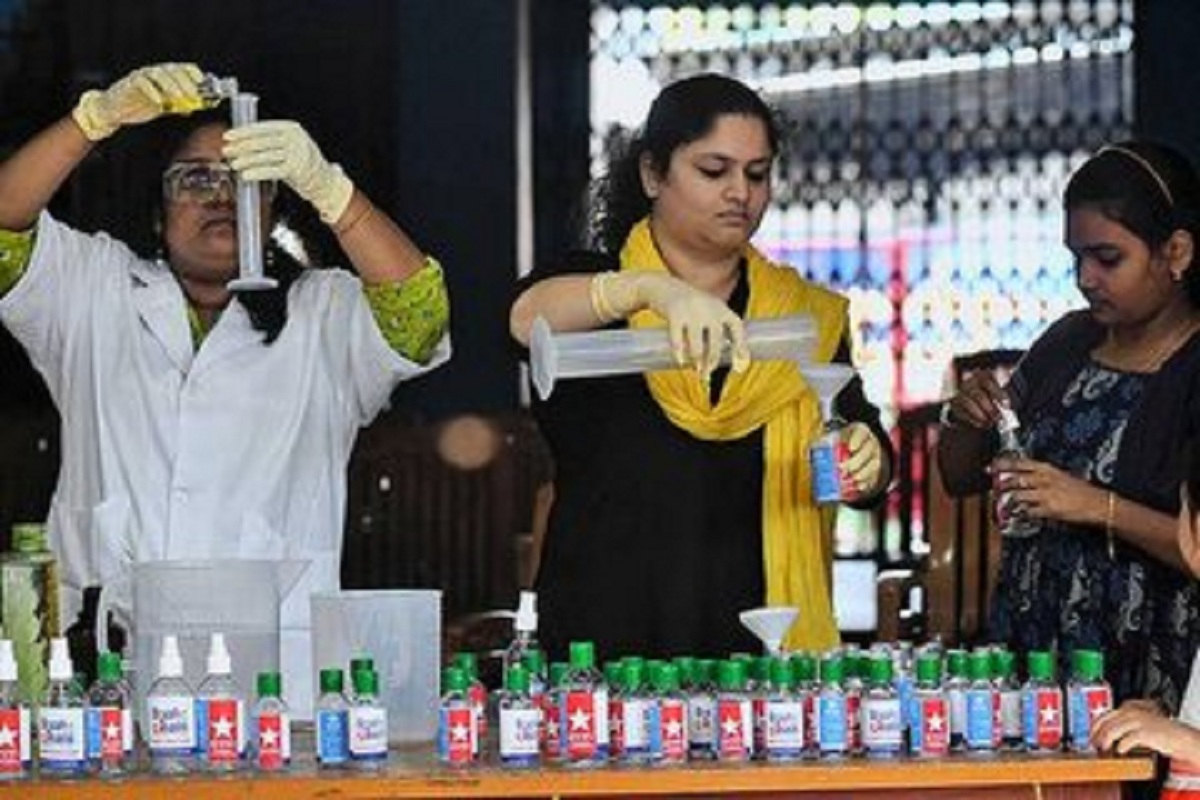Saving history through photographs
A photography exhibition, Bonedi Bari Photography Exhibition 2.0 started today at the Kolkata International Foundation in south Kolkata.
Working round the clock, a trained self help group under the District Rural Development Cell (DRDC) has started manufacturing hand sanitisers to help the commoners.

(Image: Twitter/@Advaidism)
As masks and sanitizers fly off the shelves across the state and producers are not being able to meet the increased demands, women self help groups in Nadia have stepped in to contain the situation. Working round the clock, a trained self help group under the District Rural Development Cell (DRDC) has started manufacturing hand sanitisers to help the commoners.
Though several institutions like Kalyani University and Maulana Abul Kalam Azad University of Technology have joined hands in manufacturing hand sanitisers to mitigate the crisis, but here, the DRDC’s production is being guided by a chemist and are also being done according to the instruction of the World Health Organisation (WHO).
Advertisement
Eight women who are well trained in manufacturing sanitisers are involved in the production at DRDC and it has National Accreditation Board for Testing and Calibration Laboratories (NABL), a constituent board of Quality Council of India, certified lab.
Advertisement
This apart, it has its own machine and it bears required drug licenses, said Nilanjan Bhattacherjee, deputy director of the DRDC project and Senior DC of Nadia district administration.
“The SHG women have already started the production and this will be supplied at various quarantine centers, to health workers at different health centers and hospitals, in the housing campuses where all medical staffs stay for temporary periods,” said Vibhu Goel, district magistrate, Nadia. In light of the rapidly evolving COVID-19 pandemic, there is an expected shortage of alcohol-based hand sanitizers.
The Centers for Disease Control (CDC) recommends washing hands with soap and water whenever possible because hand washing reduces the amounts of all types of germs and chemicals on hands. If soap and water are not available, using a hand sanitizer with a final concentration of at least 60 per cent alcohol can help you avoid getting sick and spreading germs to others.
“In the DRDC lab, Ethyl Alcohol, Glycerin and Aloe-vera are being used as prime ingredients for manufacturing hand sanitiser. As per WHO guidelines, our sanitiser contains 70 per cent alcohol and Aloe vera has been used as an aromatic substance, said Mr Bhattacherjee.
“The DRDC is producing three types of bottling -50 ml, 200 ml and 1 lit. The bottles containing 50 ml will be given to individuals while bottles containing 1 litre will be provided to health centres and health staff.
From today, the women are manufacturing the produce in two shift duties and they have the capacity to manufacture 2,500 liters per day, Mr Bhattacherjee said. Meanwhile, the S N Innovations Center’, the science research and innovation wing of Kalyani University has also started manufacturing hand sanitisers for free distribution among health workers and local people.
Advertisement